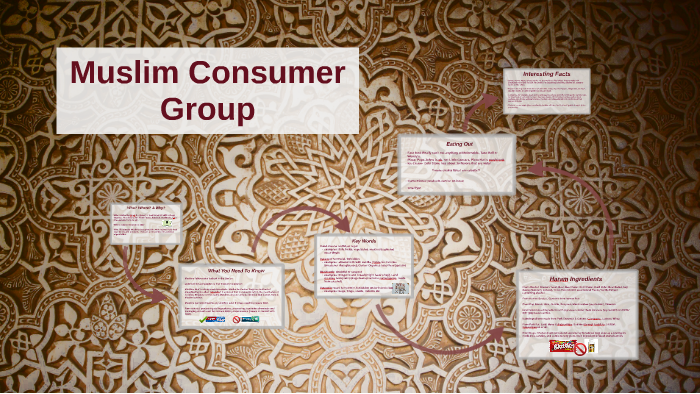


As mentioned before, more than 90 percent say that their beliefs somehow affects their consumption, not always and for everything, but in some way. One of the characteristic features of Generation M (Millennial Muslims) is the reconciliation of faith and modernity. These kind of consumers are basically being considered as the new segment of the Muslim market. They want to relate to their standard values, but at the same time they are very conscious with the environment, eating healthy and peace. What we see is the emergence of young consumers, they are more conscious buyers who focus on values and ethics. They want to see that they are served correctly and respectfully. Do brands consider Millenial Muslim consumers? How should we describe this new generation? These young consumers are very understanding, very knowledgeable and blame the brands for this situation. However repeated studies show that two-thirds of Muslim consumers are consistently disappointed by Western brands. According to the Pew Research Center’s world wide survey 90% of Muslims claims that their faith impacts their buying habits, therefore categorically ignoring the needs of Muslim consumers is clearly a costly mistake. Muslims are a largely underserved and frequently overlooked economic sector. Unfortunately, Muslim consumers’ wants and needs are not taken into account by marketers to give an accurate analysis and the power of the Muslim economy is often underestimated. Besides, Muslim consumers seem to be hesitant about linking with brands.

It has a very young demographic structure that grows not only in numbers but also in terms of spending and impact. dollars) Source: The Muslim lifestyle market is estimated to be more than $26 trillion, and the Muslim population is more than $1 billion, including more than 81 countries. According to Statista, the existing Muslim market size is approximately valued at $2.11 billion and has potential to grow to about $3 billion by 2023.Įxisting and potential value of the Muslim market worldwide in 20 (in billion U.S. Broadly speaking, the Muslim population is growing, Muslims work harder are more productive, and are earning better than before. Overall, these economies consists of more than 12% of the world’s GDP and one-fifth of its population. In general, the Muslim population live in 30 different emerging markets, in which they make up the majority population. The most important factors in increasing incomes of Muslims include better education, better jobs and having a much younger population than the world on average. In USA alone, Muslims reach more than $110 billion in disposable income annually. State of the Global Islamic Economy Report has indicated that Muslim consumers spent $1.9 trillion in 2015 globally and this figure is expected to be more than $3 trillion by 2021. Therefore, the number of Muslim consumers who have high purchasing power is growing rapidly in every market. It has not been confirmed that AlSafa uses chicken or duck feathers.It is a fact that Islam is the world’s fastest growing religion. After MCG's publication of these findings, the source for the L-Cysteine was changed in a large part to chicken or duck feathers. A well known Halal food company, AlSafa, uses L-Cysteine in its chicken nuggets, chicken patties, and chicken strips. cities, to donuts made by Dunkin' Donuts. It was found that there were several companies that were using this in their baked goods that varied from Naan, which was being supplied to Muslim stores in major U.S.

Muslim dietary laws do not allow the ingestion of anything that is derived from the human body. MCG also visits mosques and religious centers in the United States to give educational presentations about food products, medicine, cosmetics, and personal care products.Ī major breakthrough in R&D was the discovery of the source of L- Cysteine, which was being derived from human hair. and Canadian Supermarkets that lists food products and ingredients that are certified as Halal. MCG has written a book, titled A Comprehensive List of Halal Food Products in U.S. MCG first established its website in 2000 to educate Muslims throughout the world about the Halal status of food ingredients, E-numbers and food products.


 0 kommentar(er)
0 kommentar(er)
